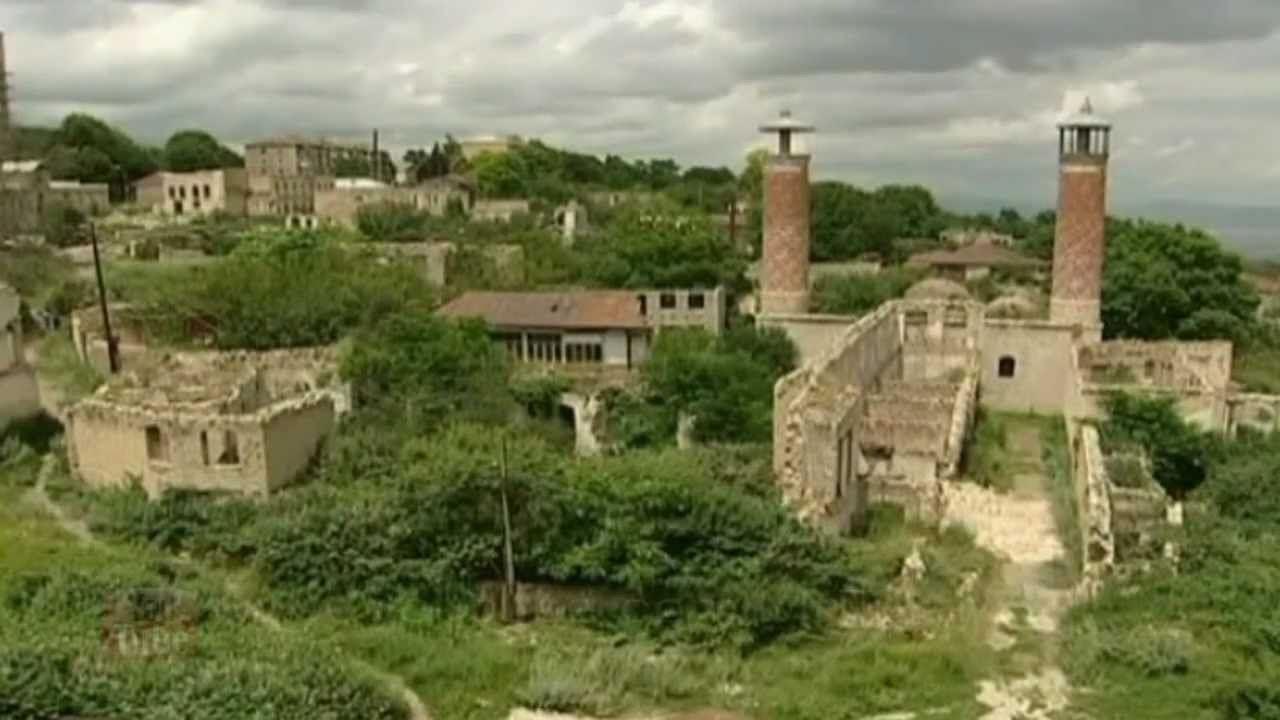Liberation of Azerbaijani territories opened up possibility for development of South Caucasus, although hampered by Iran's actions - New Europe

By Trend
Liberation of Azerbaijani territories [from Armenian occupation in the 2020 second Karabakh war] has opened up new opportunities for development of South Caucasus through regional cooperation, although hampered by some factors, and, first of all, Iran's actions, Trend reports referring to article of Robert Cutler, fellow at the Canadian Global Affairs Institute, published in New Europe independent newspaper.
According to Cutler, one year after the end of the second Karabakh war, the landscape in the South Caucasus has changed: both politically and physically, and Azerbaijan is moving with great speed to restore the liberated territories.
"Highways have been constructed linking them [liberated territories] with the eastern part of the country. One international airport has already opened, and two more are under construction. The formerly occupied regions are becoming a generator of economic growth for Azerbaijan," he said.
The article noted that peace and prosperity may come to the South Caucasus through regional cooperation, however, such a development is hampered, is still hampered by actions of Iran.
"Iran has every reason to seek to turn Armenia into a failed state, like Lebanon, in order to push its own interests in South Caucasus. This would be a disastrous development for Armenians in Armenia, for the whole of the South Caucasus, indeed also for Turkey and even for Russia," Cutler wrote. "A relatively stable Armenia - even one with a truly democratic civil society - would be more in Russia’s interest than an unstable Armenia with increased influence from terrorist-sponsoring Iran."
According to the article’s author, Iran is playing the "Armenia card" against Turkey, but this ends up being also against Russia and is not in Russia’s national interest.
"A relatively stable and not-impoverished Armenia under Russian influence is more to Moscow’s advantage than an unstable Armenia under increased IRGC [Islamic Revolutionary Guard Corps] influence.
"One might say that a struggle has thus started for the soul of Armenia, and that its result will have implications for the entire south Caucasus and beyond. The victory of Prime Minister Nikol Pashinyan in Yerevan in the snap parliamentary elections in June this year was extraordinary, insofar as he had been head of the government during the second Karabakh war," Cutler further noted.
"Armenia has the opportunity to leave behind the failed policies of the "Karabakh clan" that impoverished the country for two decades. The country needs investment, and for that, it needs a formal peace treaty. Armenia can still be saved from becoming a failed state, but forces are working against it," the author also wrote.
He noted that these forces are not from Azerbaijan, because a prosperous, truly democratic Armenia can only contribute to international security in the whole South Caucasus, including Azerbaijan.
"Indeed, the only country that may have the financial means to invest in Armenia for peaceful purposes would seem to be Azerbaijan. This is why a peace treaty is imperative the soonest possible," the article said.
The author stressed that destabilizing forces come from Iran and the Armenian diaspora, the most vocal and militant parts of which are working with Iran to provoke a new catastrophic war.
Yerevan has been recruiting and even finding new external allies, beyond its long reliance on the Armenian diaspora for international publicity and financial support. In particular, Iran has moved from covert support of Armenia to overt support of Armenia, the expert emphasized.
"Diplomatic communications have intensified. In January, an Iranian Export and Investment Centre was established in Yerevan. It makes sense that Iran, which is perpetually more or less hostile to Azerbaijan, finds common cause with the Armenian diaspora, which by all appearances wishes to prepare a third Karabakh war against Azerbaijan. The more Armenian diaspora is actively involved in the lobbying for Iranian interests, and not only in Yerevan," he wrote.
According to him, the Armenian diaspora has been one of the strongest elements of the "war party" in Yerevan over the past three decades.
"Living abroad, the diaspora does not have to suffer the effects of the disastrous policies that it advocates. The former chief advisor to Armenia’s president Levon Ter-Petrosyan in the 1990s, Jirair Libaridian has warned about how the Armenian diaspora’s mythomania and territorial claims about "Greater Armenia" may lead to the demise of Armenia as it exists today," Cutler added.
The author pointed out that the Armenian economy has collapsed.
"The population outside Yerevan is migrating out of the country. The Armenian diaspora could assist greatly with foreign direct investment into Armenia for real economic and social prosperity, but they do not do this," the article said.
"Rather, they [the diaspora representatives] see their own interest in grandstanding from a distance, without caring about Armenian lives in Armenia; and so they assist Iran: against the interests of Russia, the interests of Turkey, and indeed the interests of the European Union which seeks only a stable and prosperous neighborhood in the South Caucasus," concluded the article.
-
Follow us on Twitter @AzerNewsAz
Here we are to serve you with news right now. It does not cost much, but worth your attention.
Choose to support open, independent, quality journalism and subscribe on a monthly basis.
By subscribing to our online newspaper, you can have full digital access to all news, analysis, and much more.
You can also follow AzerNEWS on Twitter @AzerNewsAz or Facebook @AzerNewsNewspaper
Thank you!
